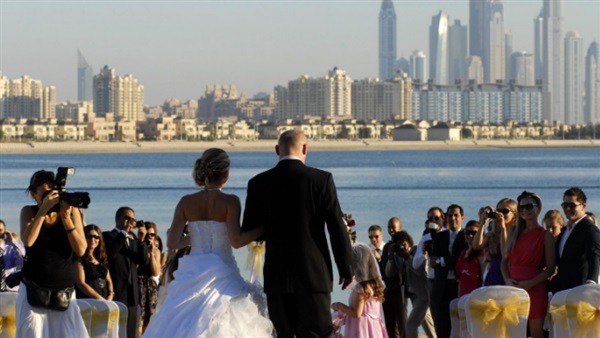"Dubai Emerges as the New Destination for Express Mixed-Faith Weddings

Dubai is set to offer express marriages to tourists and
residents alike, becoming the Middle East's answer to Las Vegas. The recent
reforms allow couples of mixed faith to receive a civil wedding license in just
24 hours. The reforms were first introduced in Abu Dhabi last year, drawing in
6,000 couples. Dubai, being one of the world's most visited cities, will now
also offer quickie weddings, which will help the Gulf state attract foreign
investment and bolster its 9 million expats, who make up 90% of the population,
including 250,000 British residents.
Laura Richards from London and her Muslim partner Ahmed
Dallal from Lebanon are among the first couples to sign up for an express
marriage in Dubai. The couple, both bankers, met in Dubai five years ago and
were initially planning to marry in Cyprus. However, after hearing of the legal
changes, they decided to marry in the city where they met. The reforms make
life easier for mixed-faith couples, who were previously struggling to find a
place to wed.
The reforms also help attract couples from diverse countries
such as Afghanistan, Saudi Arabia, Lebanon, and Israel, due to the speed at
which they can get married. Abu Dhabi attracts roughly 30 weddings a day from
around 180 nationalities, including mixed-faith couples coming from Israel. The
recent secular laws in the UAE, which also include decriminalizing unmarried
pregnancy and cohabitation, are seen as a political statement of modernity,
acceptance, inclusion, respect, and tolerance.
Hesham El-Refai, a UAE legal expert, stated that the
mandatory application of Sharia law on expats was a problem and continues to be
in the rest of the region. The new reforms cover issues such as making civil
inheritance equal, allowing for "no fault" divorce and bringing women
into the courts as judges. The reforms are crucial in attracting the best
talent and foreign investment, as El-Refai explained that "you can't
attract the best talent and foreign investment without first having a secular
family law."





